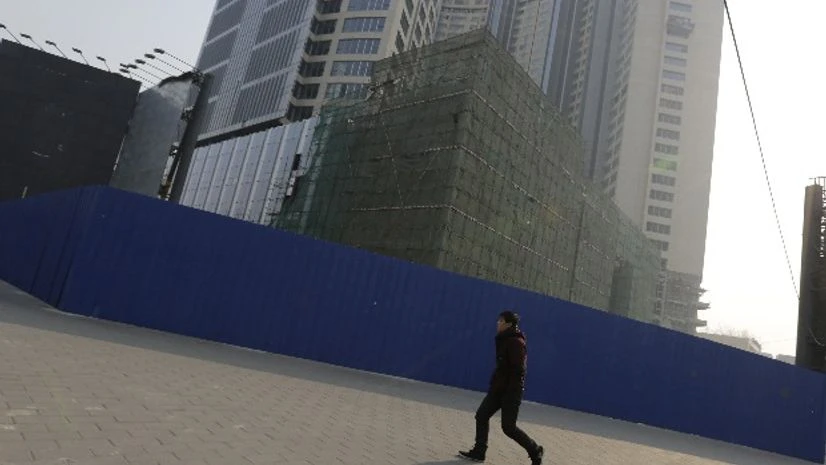Internet financing, a fast-growing source of funding for small companies and start-ups, is finding an unlikely new class of customer in China - billion-dollar real-estate developers having a tough time securing loans from traditional sources.
Before China's property market hit the skids in early 2014, developers relied heavily on the multi-trillion yuan trust loan industry, part of the country's large, opaque shadow banking industry, but only 10% of the money trusts have raised this year has gone into real estate, down from 30% in the same period last year.
That's partly because trust firms, which pool money from rich individuals and companies to make high-interest loans, are themselves finding it harder to raise cash due to greater scrutiny from anxious regulators, but also because they are less keen on lending to the slowing property sector.
Developers are trying to fill that hole with the aid of online financing from peer-to-peer (P2P) lending, which connects borrowers and lenders, and crowdfunding, which has mostly been the preserve of would-be entrepreneurs with little more than an idea to get off the ground.
"The trust market (for real estate) last year was valued at several trillion yuan," said William Huang, general manager for developer Greenland Hong Kong. "This is our target market that online financing will eventually replace."
Also Read
The entire internet financing market is a long way from that scale, but industry observers say it will more than triple this year to over 350 billion yuan ($56 billion).
Greenland launched a P2P property financing product "Di Chan Bao" in April, raising a total of 450 million yuan for its projects that month. It is aiming to raise 5-8 billion yuan this year, and from this month will also raise funds for other developers.
Faced with reluctant banks and trusts, developers welcome the rapid growth of an alternative source of funds, but scaling up this immature market carries systemic risks.
"Information asymmetry and inadequate risk management will hinder the growth of the online financing market," said Xu Hongcai, director of the Information Department at the China Center for International Economic Exchanges.
China's central bank has voiced some concerns, and Beijing is expected to introduce regulation for the industry this year, a source at a government financial services agency has said.
CROWDED HOUSE
The crowdfunding model being used by developers offers lenders better investment returns if they also buy a property, tapping in to the roughly 3 million Chinese with assets of about $1 million or more, which brings new projects an early batch of customers and saves on marketing costs.
A China Real Estate Crowdfunding Alliance was formed in late May with mostly industry leading members including China Vanke, Greenland Group, Country Garden, Shimao Property and Greentown China. The trading platform will be run by Ping An Group, a major insurance conglomerate.
China Vanke, the country's largest developer, raised close to 16 million yuan via crowdfunding for the first time in November, giving investors a 4% annualised return.
"Crowdfunding provides companies with relatively cheap refinancing capital and at the same time secures a group of customers a few months prior to the actual project launch. This could help lower the sales risk due to market factors in later stages," Vanke said.
Dalian Wanda, another large property group, will roll out its first crowdfunding on Friday, refinancing several billion yuan.
Beijing-based Modern Land, a smaller developer that has so far raised over 45 million yuan online this year through six crowdfunding campaigns, offering 8% returns to straight investors, more to customer-investors, said they could shave 15% off their total costs if they crowdfunded all future projects.
"It lowers intermediary costs including refinancing costs and marketing fees, and speeds up sales as many of our investors will also be our clients," the company's president, Zhang Peng, said. "As the business model matures and its market acceptance rises, we'll include it as part of our overall refinancing channels."

)
